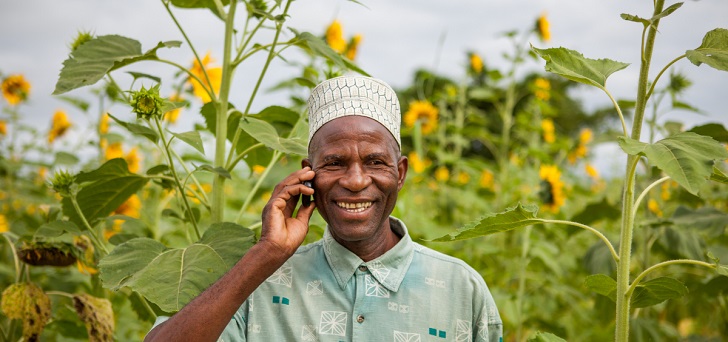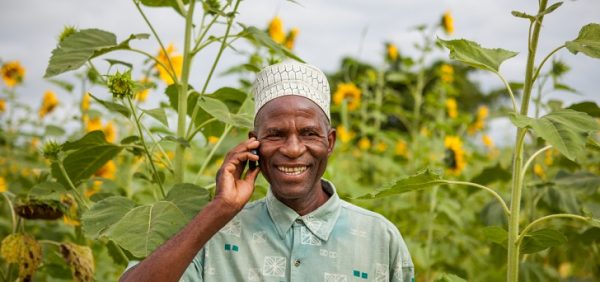Machines have become a part of our lives. From the days of the industrial revolution, man has steadily improved upon primitive versions of mechanical aids, powered by engines and fueled by varying energy sources. Today, these things are everywhere. If you are reading this piece, you have one in front of you.
Agriculture has not been left untouched by the hurricane of mechanization. There are tractors, ploughs, harrows and the others, which have replaced the ancient bulls, hoes and axes. The general consensus is that this is a good thing. Increased output produced by fewer hands, freeing a mass of mankind to delve into other important fields. Putting more cash in farmer’s pockets, and more food on everyone’s table.
Why can’t cell phones be seen as good for the farmer’s business too?
Not everyone has this view. The argument from illiteracy, in particular, is usually pointed to as showing how irrelevant cell phones are to farmers in general. This sort of argument greeted the announcement early in January 2013, that farmers in Nigeria would be getting 10 million mobile phones from the government, as part of its Growth Enhancement Scheme (GES) for the agricultural sector. The GES, organized by the Ministry of Agriculture, had been designed to help small-scale farmers gain access to agricultural inputs (particularly fertilizers, improved seedlings, and agrochemicals) at government-subsidized rates. This was to be accessed using an electronic voucher sent to the farmer’s phone. The aim was to cut the waste and corruption that had turned the fertilizer and seedling distribution process into something akin to a charade. The impact of this program was astounding- 8.1 million metric tons were added to the domestic food supply, according to Dr. Akinwunmi Adesina, the Minister for Agriculture at that time. Cell phones, deployed in conjunction with a well-devised policy, brought about a visible improvement of farmers’ fortunes.
It is a known fact that mobile phone use in sub-Saharan Africa has grown by leaps and bounds within two decades. And farmers on the continent have taken advantage of this device in many innovative ways. They are able to obtain vital market information such as prices, as well as important details pertaining weather conditions via SMS; this information is usually broadcast by organizations which specialize in disseminating agricultural information to farmers, at little or (in some cases) no cost. This use of the mobile phone by farmers is most widespread in east African countries such as Kenya and Uganda and is fast spreading to other countries. Transactions are also monitored using the mobile phone, and expert and emergency services are accessed via this medium as well. Other trends include the use of the speaker function for mobile conferencing and storing vital information in the mobile phone calendar. Younger farmers may, and have been able to use social media to communicate and bridge the gap caused by rural isolation.
It seems strange that anyone would fault the need for farmers to get a cell phone; the claim that illiteracy makes mobile phone use by most of them impossible is in itself questionable. Available data shows that most of the transactions done by farmers over the phone have been carried out using local languages. Information can be delivered to them in these languages. There is also a noted willingness on the part of farmers to learn to use the mobile phone if they are told about how it will benefit them.


